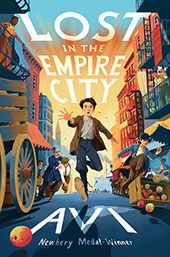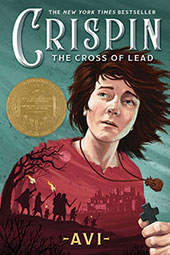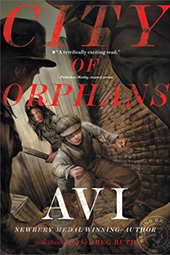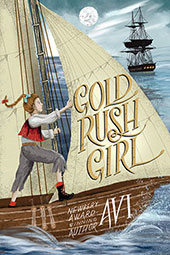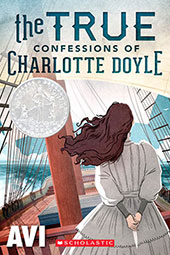When you write historical fiction, such as I do, my research can take me anywhere and generally does. Such searches are helped by a wonderful truth: there seems to be a book, an article, or a memoir about anything and everything. Search, and you will find, something the research librarian in me loves to do. Indeed, I have a family reputation for spouting odd facts that have no particular relevance to anything, other than to fill a lull in the table conversation.
When writing about the 1911 subways in New York City, (Lost in the Empire City) I located an engineering guide to the then-recent building of the subways, which enabled me to discover that the first subway cars were built of wood.
If you were riding one, you surely would notice that.
When researching the Crispin books, I found a book about Medieval cursing, which was helpful when trying to have the main character, Bear, express himself. The cursing wasn’t scatological as much as mildly sacrilegious, such as “I swear by the bones of Christ.”
Then, for the same Crispin books, I found a book about the medieval forests of England, which was helpful when describing Crispin trying to escape his pursuers.
More recently, the memoir of a Midwest high school principal delineated the curriculum of 1920’s schools, which helped me write my The Secret Sisters. How else would I have learned that the teaching of Latin was considered essential? Or that if young women played basketball using men’s rules — lots of running — it was considered biologically harmful to their reproductive functions.
City of Orphans is, in part, about Danish immigrants living in America at the end of the 19th century. A collection of songs published by the University of Minnesota Press, songs written by Danish immigrants, helped me express the sorrow of the father in the family when things became hard.
Did you know that 19th-century sticks of dynamite used in mining operations were colored orange? Useful in my story for the main character to see — from a distance — what the villain of the story was carrying.
Speaking of Orange, the Hudson River was once called The Orange River. The House of Orange being the ruling family of the Netherlands, who once controlled that area.
What was served by way of food in eighteenth-century taverns? I needed to find out when writing Loyalty. For the same book: Could a boy of thirteen join the British Army? Nope.
For Gold Rush Girl I came upon a description of a nineteenth-century ship sailing about the southernmost point of South America — Cape Horn. It was so cold and wet that the bearded captain of the ship bent over a hot wood stove so the ice in his beard would melt.
For that book, I also came upon a contemporary manual of etiquette that delineated how girls should talk to boys when learning to dance.
Recently I learned about the lack of salt in the American colonies during the revolution. At that time salt had been imported from the Caribbean Islands, but they were controlled by the British. Why was that important? Salt was crucial in the preservation of meats. During the war enterprising colonists — including the state of Pennsylvania — set up salt farms near the sea to extract salt from the ocean waters.
When writing The True Confession of Charlotte Doyle I had to learn about the names of the multitudinous sails on a sailing ship. That was vital when the first mate sang out orders. While researching that I learned that there was a way of getting a sailing ship to sail backward! That’s not something in the book, but I found it amazing. It is sort of like teaching a teenage driver how to back up a car.
Currently, for the book I am writing, I came upon a History of American Hotels.
Invite me to dinner and I’ll be happy to share what I discover. But only when there’s nothing else to talk about.
